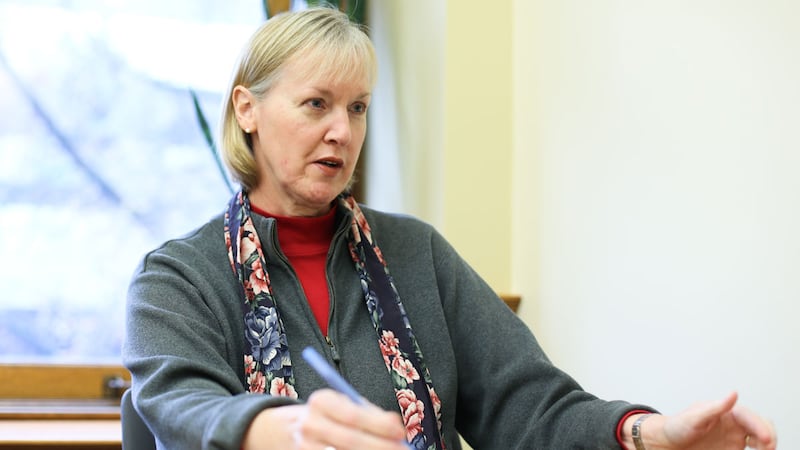Next month, Portland’s elected auditor, Mary Hull Caballero, will ask the City Council to refer a charter amendment to voters in May 2017 that she says would give the auditor more control over the office’s budget—and help it avoid conflicts of interest.
The change, if approved, would enshrine the auditor’s Independent Police Review and ombudsman in the charter, insulating them from political pressure. Right now, the mayor and City Council can theoretically abolish the IPR or ombudsman; putting them in the charter would require a vote of the people.
Hull Caballero, who took office in 2015, sat down with WW to talk about what’s driving her proposal—and what Portlanders would get out of the change.
WW: Broadly speaking, what are you seeking?
Mary Hull Caballero: Portlanders elected a city auditor to hold the government accountable, and organizational independence is the bedrock of our ability to do that work. Since I’ve been here, I’ve run into several examples where the organizational structure of the city undermines our ability to do that.
Uber must offer an example, right? Last year, you investigated Mayor Charlie Hales and Commissioner Steve Novick for violating city rules by not reporting a meeting with Uber lobbyists, correct?
As an elected auditor, I was investigating two other elected officials, and at the beginning of that, all three of us were being advised by the City Attorney’s Office. It quickly became apparent to me that was not serving the investigation well.
Right now, you need permission from the city attorney to get outside counsel. You want to be able to do that without seeking approval. Why?
The mayor and City Council hire and supervise the city attorney, and I don’t have any role in that decision-making. By human nature, she would be responsive to the people who hire her and hold her accountable for her performance. So there’s just an inherent conflict there.
The last major charter change concerning the auditor’s office happened 30 years ago, before the office launched the Independent Police Review.
It’s just a different office than it was 30 years ago, and it often is taking positions that are adverse to other city bureaus and other elected officials.
Walk us through what happened last year when Mayor Hales directed bureaus to cut 5 percent from their budgets so he could redirect money to affordable housing.
That’s a fine priority to have. I don’t have any objection to that. But they were lumping this office in with other bureaus as if it were just another bureau instead of a co-equal elected office just like theirs are. They exempted their offices from the 5 percent cuts but they fully expected the accountability function to cut its budget 5 percent so they could take that money for their legislative policy choices.
But you were ultimately spared the cuts, right?
I was spared some cuts. But my budget was cut and theirs were not.
Is the goal to make it so they can’t cut your budget?
As the government grows, this office should also grow, because the need for accountability never diminishes. It actually increases when there are more expenditures, more programs, more employees. If Portland’s fortunes decline and revenues decline, we think this office should also decline in its size and function.
What’s the outcome you hope for?
The ultimate goal that we’re trying to get to is that the mayor and council, when they sit as the budget council, respect this office’s needs for resources to do its work and neither reduce the auditor’s office budget to fund something else they like better nor engage in some sort of retribution if they’re unhappy with something we’re doing.
